S2.08 Bill Hanage

Jodi Whittaker
On 16 July 2017, the BBC announced that Whittaker would play the thirteenth incarnation of the Doctor in Doctor Who. She formally assumed the role from Peter Capaldi in the 2017 Christmas special episode "Twice Upon a Time". Whittaker appeared in her first full series as The Doctor in the eleventh series, which premiered in October 2018. She continued in the role in the twelfth series in 2020 and thirteenth series in 2021. It was announced on 29 July 2021 that she would step down after three special episodes in 2022.

Arsenal Football Club
Arsenal Football Club, commonly referred to as Arsenal, is a professional football club based in Islington, London, England. Arsenal plays in the Premier League, the top flight of English football. The club has won 13 league titles (including one unbeaten title), a record 14 FA Cups, two League Cups, 16 FA Community Shields, one European Cup Winners' Cup, and one Inter-Cities Fairs Cup. In terms of trophies won, it is the third-most successful club in English football.
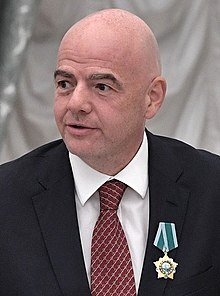
Gianni Infantino
Infantino was a member of FIFA's Reform Committee. On 26 October 2015, he received the backing of the UEFA Executive Committee to stand for the position of president in the 2016 FIFA Extraordinary Congress. On the same day, he confirmed his candidacy and submitted the required declarations of support. He promised to expand the FIFA World Cup to forty teams.
Possible distant relation to Jim...
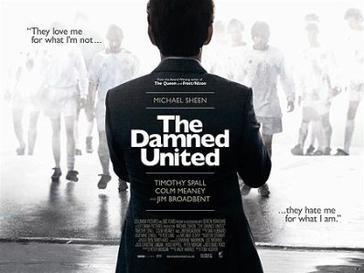
The Damned United
The Damned United is a 2009 British sports drama film directed by Tom Hooper and adapted by Peter Morgan from David Peace's bestselling 2006 novel The Damned Utd – a largely fictional book based on the author's interpretation of Brian Clough's ill-fated tenure as football manager of Leeds United in 1974. Produced by BBC Films and Left Bank Pictures with additional funding from Screen Yorkshire and Columbia Pictures, Sony Pictures Releasing International served as distributor.
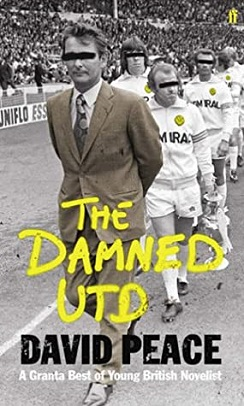
The Damned Utd
by David Peace
Overachieving and eccentric football manager Brian Clough was on his way to take over at the country's most successful, and most reviled football club: Leeds United, home to a generation of fiercely competitive but ageing players. The battle he'd face there would make or break the club - or him.
David Peace's extraordinarily inventive novel tells the story of a world characterised by fear of failure and hunger for success set in the bleak heart of the 1970s.

Brian Eno NYTimes article
From the article by David Marchese:
Have you LARPed?
I’ve done limited, party-game versions of it. I love those but I’ve never done it on a sort of proper scale.
Do you have a LARPing fantasy?
Yes! Did you read Kim Stanley Robinson’s most recent book? “The Ministry for the Future”? The great science fiction writer’s most recent novel, which is about how humanity might address climate change. His most recent book, though, is the nonfiction “The High Sierra: A Love Story,” published in May. Yeah. That would be a great thing to do some LARPs from. I’d love to be the black-ops specialist in that book. I’m always interested in these nonconforming areas where a new story is being told.
Recommended by Lionel

John Terry full kit wanker
Chelsea stalwart John Terry has once again lifted a major European trophy (this time the Europa League) in his match day strip after missing the final game – so, understandably, you want more John Terry full kit jokes.
Mentioned by Bill Hanage.

Thanksgiving, Lincoln, & FDR
On October 6, 1941, both houses of the United States Congress passed a joint resolution fixing the traditional last-Thursday date for the holiday beginning in 1942. However, in December of that year the Senate passed an amendment to the resolution that split the difference by requiring that Thanksgiving be observed annually on the fourth Thursday of November, in order to prevent confusion on the occasional years in which November has five Thursdays. The amendment also passed the House, and on December 26, 1941, President Roosevelt signed this bill, for the first time making the date of Thanksgiving a matter of federal law and fixing the day as the fourth Thursday of November.

Billy Butcher
He is the leader of the eponymous team of vigilantes who are bent on taking down Vought and the Seven by whatever means necessary. A former member of the British special forces turned vigilante, Billy Butcher is as charming as he is cunning. He's a force of nature, who can talk almost anyone into anything, either through a smile or brute force – or sometimes both. He's consumed by one mission in life: to destroy superheroes. But this personal vendetta is driven by his hatred for one Supe in particular: Homelander. Butcher's determined to get revenge on Homelander, no matter the cost, and he won't let anyone or anything stand in his way.

I Contain Multitudes: The Microbes Within Us and a Grander View of Life
by Ed Yong
Every animal, whether human, squid, or wasp, is home to millions of bacteria and other microbes. Many people think of microbes as germs to be eradicated, but those that live with us—the microbiome—build our bodies, protect our health, shape our identities, and grant us incredible abilities. In this astonishing book, Ed Yong takes us on a grand tour through our microbial partners, and introduces us to the scientists on the front lines of discovery.
Recommended by Bill Hanage.
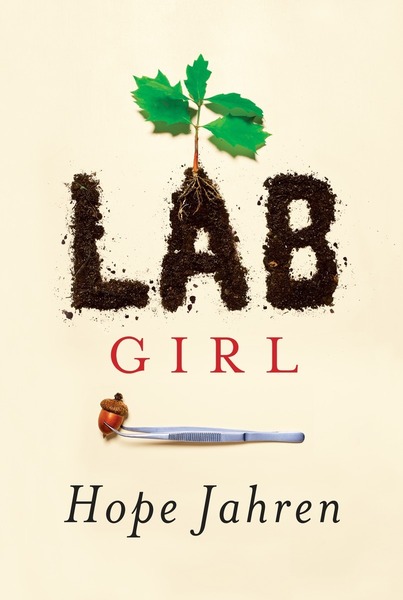
Lab Girl
by Hope Jahren
Lab Girl is a book about work, love, and the mountains that can be moved when those two things come together. It is told through Jahren’s stories: about her childhood in rural Minnesota with an uncompromising mother and a father who encouraged hours of play in his classroom’s labs; about how she found a sanctuary in science, and learned to perform lab work done “with both the heart and the hands”; and about the inevitable disappointments, but also the triumphs and exhilarating discoveries, of scientific work.
Recommended by Bill Hanage.
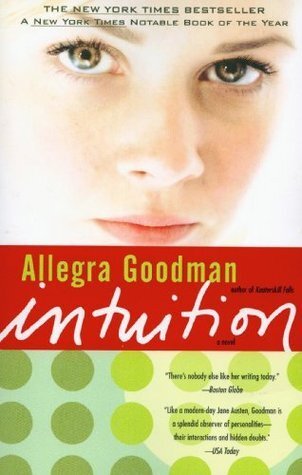
Intuition
by Allegra Goodman
Sandy Glass, a charismatic publicity-seeking oncologist, and Marion Mendelssohn, a pure, exacting scientist, are codirectors of a lab at the Philpott Institute dedicated to cancer research and desperately in need of a grant. Both mentors and supervisors of their young postdoctoral protégés, Glass and Mendelssohn demand dedication and obedience in a competitive environment where funding is scarce and results elusive. So when the experiments of Cliff Bannaker, a young postdoc in a rut, begin to work, the entire lab becomes giddy with newfound expectations. But Cliff’s rigorous colleague–and girlfriend–Robin Decker suspects the unthinkable: that his findings are fraudulent. As Robin makes her private doubts public and Cliff maintains his innocence, a life-changing controversy engulfs the lab and everyone in it.
Recommended by Bill Hanage.
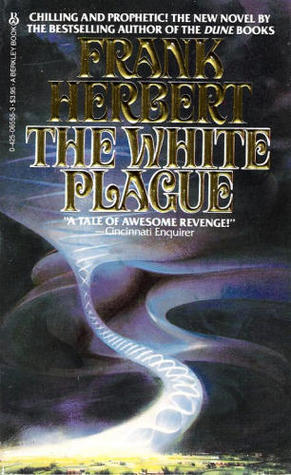
The White Plague
by Frank Herbert
The White Plague, a marvelous and terrifyingly plausible blend of fiction and visionary theme, tells of one man who is pushed over the edge of sanity by the senseless murder of his family and who, reappearing several months later as the so-called Madman, unleashes a terrible plague upon the human race—one that zeros in, unerringly and fatally, on women.
Recommended by Jim.
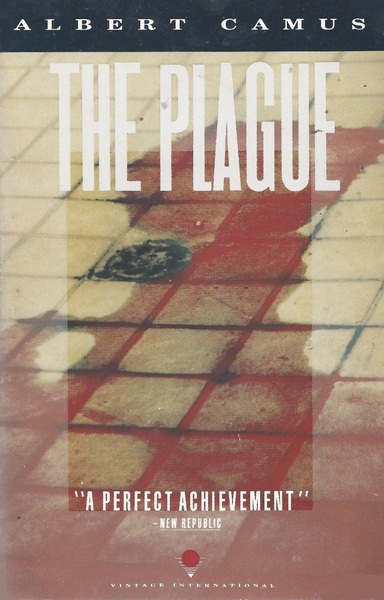
The Plague
by Albert Camus
The book tells a gripping tale of human unrelieved horror, of survival and resilience, and of the ways in which humankind confronts death, The Plague is at once a masterfully crafted novel, eloquently understated and epic in scope, and a parable of ageless moral resonance, profoundly relevant to our times. In Oran, a coastal town in North Africa, the plague begins as a series of portents, unheeded by the people. It gradually becomes an omnipresent reality, obliterating all traces of the past and driving its victims to almost unearthly extremes of suffering, madness, and compassion.
Recommended by Bill Hanage.
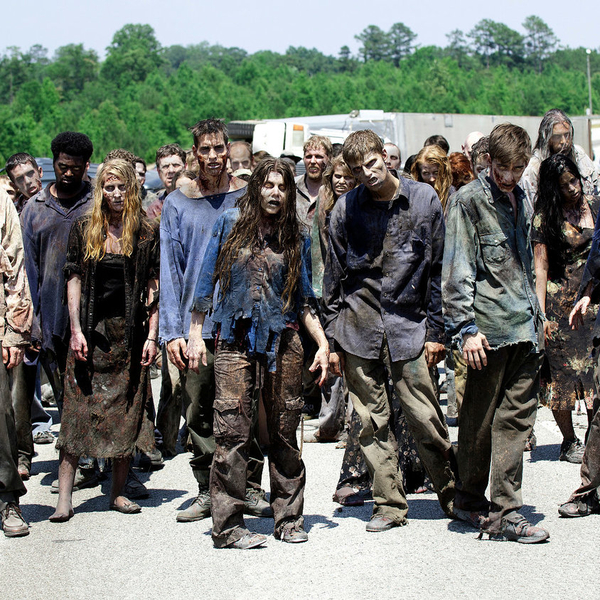
The Mathematics of The Walking Dead
by Valerie R. Coffman
For now, we'll ignore recovery because nobody recovers from being a zombie. These two populations change in number over time as susceptible people become zombies, zombies are killed, and people are born and killed (without becoming zombies). Note that in the show, all humans are infected with the virus in a dormant state. For this model, "infection" means an active infection meaning that the human has become a zombie. This happens anytime a human dies by any means other than a gouge or shot to the brain. In terms of the model the human death rate then only refers to deaths where the human does not become a zombie.

Foot-and-mouth disease
In October 1967, a farmer in Shropshire reported a lame sow, which was later diagnosed with FMD. The source was believed to be remains of legally imported infected lamb from Argentina and Chile. The virus spread, and in total, 442,000 animals were slaughtered and the outbreak had an estimated cost of £370 million (equivalent to £7 billion in 2021)
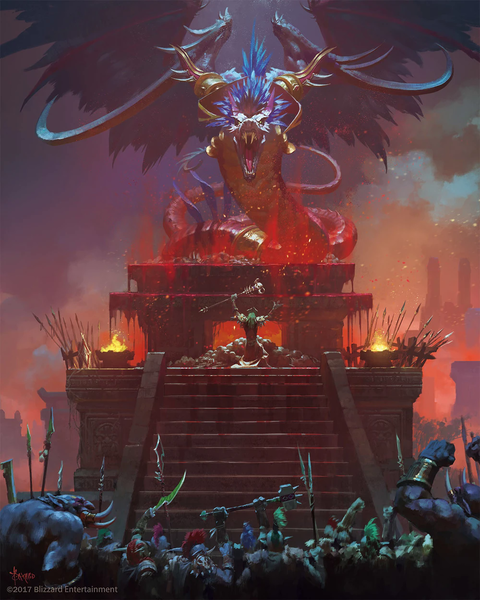
The Corrupted Blood incident in World of Warcraft
World of Warcraft introduced the game region of Zul'Gurub on September 13. The boss of the region, Hakkar the Soulflayer, cast Corrupted Blood on raid participants; the debuff's effects expired when players defeated Hakkar. Corrupted Blood soon spread beyond Zul'Gurub as players reacted to the infection with panic, either fast traveling to heavily-populated game regions or deactivating their animal companions. When those companions were reactivated, they still carried the debuff, becoming disease vectors, while non-player characters became asymptomatic carriers. Player reactions to the Corrupted blood pandemic varied: some provided aid by healing players or warning them of outbreak zones, while griefers intentionally contracted the debuff to spread it across World of Warcraft. After several failed hotfixes, Blizzard ended the pandemic by performing a hard reset, and a later patch prevented companions from contracting Corrupted Blood entirely.
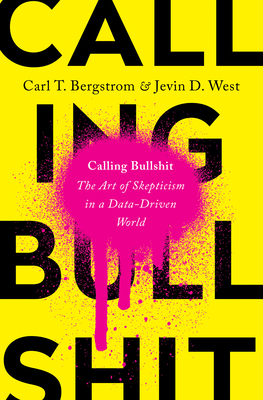
Calling Bullshit: The Art of Skepticism in a Data-Driven World
by Carl T. Bergstrom
You don't need a lot of technical expertise to call out problems with data. Are the numbers or results too good or too dramatic to be true? Is the claim comparing like with like? Is it confirming your personal bias? Drawing on a deep well of expertise in statistics and computational biology, Bergstrom and West exuberantly unpack examples of selection bias and muddled data visualization, distinguish between correlation and causation, and examine the susceptibility of science to modern bullshit.
Recommended by Bill Hanage.
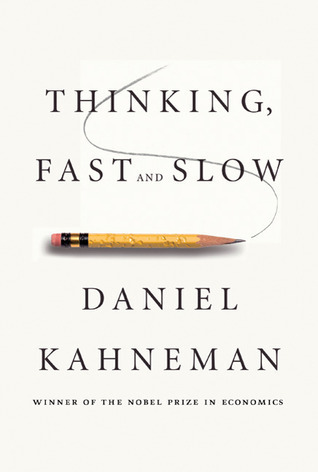
Thinking, Fast and Slow
by Daniel Kahneman
In the highly anticipated Thinking, Fast and Slow, Kahneman takes us on a groundbreaking tour of the mind and explains the two systems that drive the way we think. System 1 is fast, intuitive, and emotional; System 2 is slower, more deliberative, and more logical. Kahneman exposes the extraordinary capabilities—and also the faults and biases—of fast thinking, and reveals the pervasive influence of intuitive impressions on our thoughts and behavior. The impact of loss aversion and overconfidence on corporate strategies, the difficulties of predicting what will make us happy in the future, the challenges of properly framing risks at work and at home, the profound effect of cognitive biases on everything from playing the stock market to planning the next vacation—each of these can be understood only by knowing how the two systems work together to shape our judgments and decisions.
Recommended by Bill Hanage.
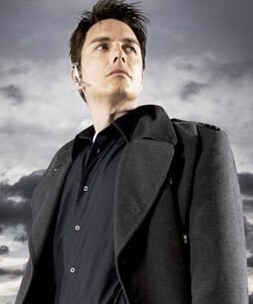
Jack Harkness
Captain Jack Harkness is a fictional character played by John Barrowman in Doctor Who and its spin-off series, Torchwood. The character first appears in the 2005 Doctor Who episode "The Empty Child" and subsequently features in the remaining episodes of the first series (2005) as a companion to the series' protagonist, the Doctor. Subsequent to this, Jack became the central character in the adult-themed Torchwood, which aired from 2006 to 2011. Barrowman reprised the role for appearances in Doctor Who in its third, fourth, and twelfth series, as well as specials "The End of Time", and "Revolution of the Daleks".

Delia Derbyshire
In August 1962, she assisted composer Luciano Berio at a two-week summer school at Dartington Hall, for which she borrowed several dozen items of BBC equipment. One of her first works, and most widely known, was her 1963 electronic realisation of a score by Ron Grainer for the theme of the Doctor Who series, one of the first television themes to be created and produced entirely with electronics. When Grainer heard it, he was so amazed by her arrangement of his theme that he asked: "Did I really write this?", to which Derbyshire replied: "Most of it". Grainer attempted to credit her as co-composer, but was prevented by the BBC bureaucracy because they preferred that members of the workshop remain anonymous. She was not credited on-screen for her work until Doctor Who's 50th anniversary special, The Day of the Doctor. Derbyshire's original arrangement served as the Doctor Who main theme for its first seventeen series, from 1963 to 1980. The theme was reworked over the years, to her horror, because the only version that had her approval was the original.
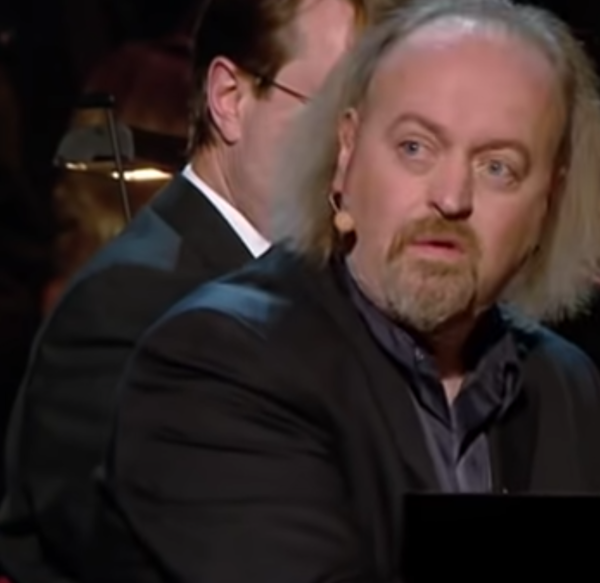
Bill Bailey - The Doctor Who theme reimagined as Belgian jazz
Comedian Bill Bailey reimagines the Doctor Who theme as Jacques Brel-esque Belgian jazz. Taken from his DVD 'Bill Bailey's Remarkable Guide to the Orchestra'. In Summer 2021, Bill Bailey performs an eight-show residency at the Royal Opera House.





